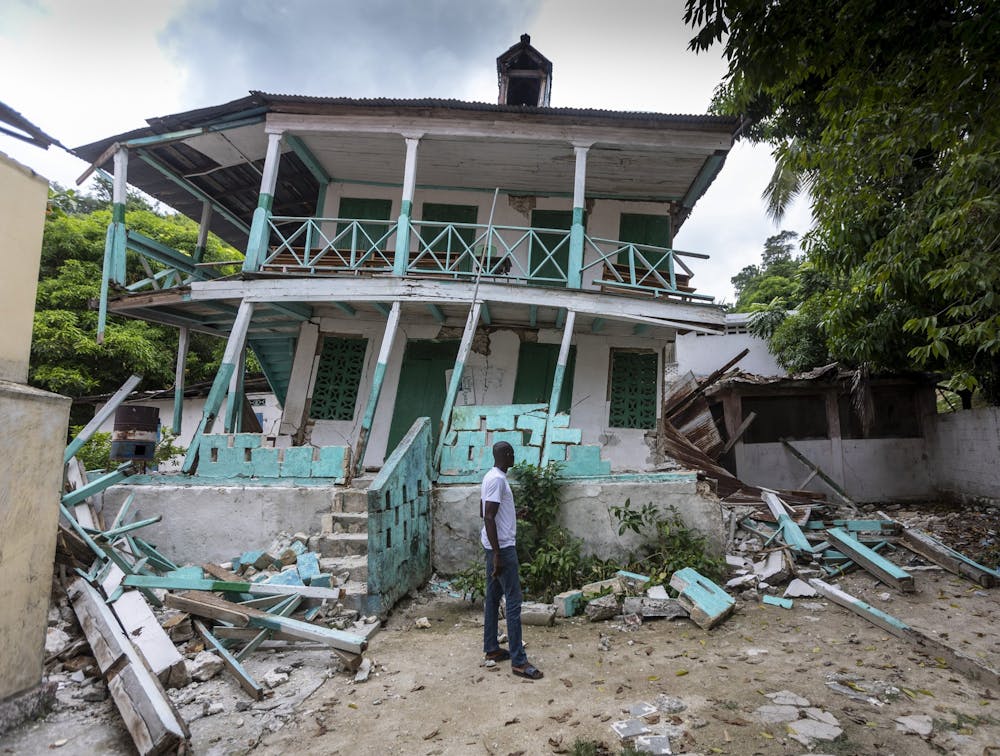Rubble surrounded the Haitian people as dust and debris smeared their skin and clothes. The people from the hard-hit cities of Les Cayes and Jeremie looked at their surroundings to see that some of the previously rebuilt houses came down again.
According to the New York Times, a 7.2 magnitude earthquake struck Haiti on Aug. 14. The earthquake killed more than 2,200 people, injuring thousands and leaving many without homes, with 300 people still missing. Two days later, on Aug. 16, Haiti was hit by Tropical Storm Grace, further damaging the country’s infrastructure and economy.
The combination of the two natural disasters comes after Haiti experienced a political crisis due to the assassination of President Jovenel Moise on July 7. According to Reuters, Moise was killed inside his home in Port au Prince, the country’s capital. His wife, Martine Moise, was badly injured and sent to Miami, Florida, to receive treatment.
Due to the assasination, the coronavirus pandemic and rebuilding from previous natural disasters — Hurricane Matthew in 2016 and the January 2010 earthquake — the Haitian community is devastated as many people have lost housing, and the government is not financially equipped to repair damaged buildings.
Tennis star Naomi Osaka, who’s father is from Haiti, shared her grief for Haiti in a Twitter post and said she plans to send the money she received from the Western and Southern Open tournament in Cincinnati to the country.
“Really hurts to see all the devastation that’s going on in Haiti, and I feel like we really can’t catch a break,” Osaka said. “I’m about to play a tournament this week and I’ll give all the prize money to relief efforts for Haiti. I know our ancestor’s blood is strong. We’ll keep rising.”
The Dominican Republic, Mexico, the U.S. and the United Nations promised to send humanitarian aid — materials such as water and food supplies — to Haiti. However, people like Mydgie Pierre-Louis, a Haitian-American and recent IU graduate, are wary of the aid being sent to the country and where it is going.
Pierre-Louis said after the 2010 earthquake, many Haitians couldn’t identify how the money was actually helping the community rebuild, and they’re worried they won’t be able to for this earthquake either.
“People were not happy,” Pierre-Louis said. “When COVID happened, there wasn’t any relief. So people are hesitant of trusting the foreign aid sometimes with money and even food.”
The Aug. 14 earthquake was more powerful than the 2010 earthquake, a 7 magnitude earthquake that killed over 200,000 people. This earthquake is expected to have fewer casualties since the quake hit further away from the highly populated Port au Prince.
Pierre-Louis said she takes pride in their heritage and the Haitian community because of its people’s perseverance through hardships.
“Haiti is very important to me even though I’m here,” Pierre-Louis said. “The resilience of its people, that is why I love Haiti.”






